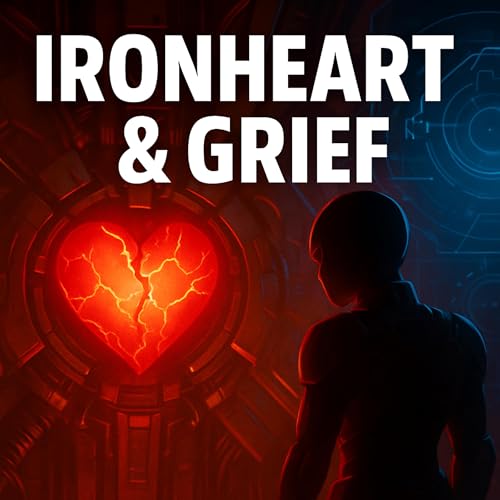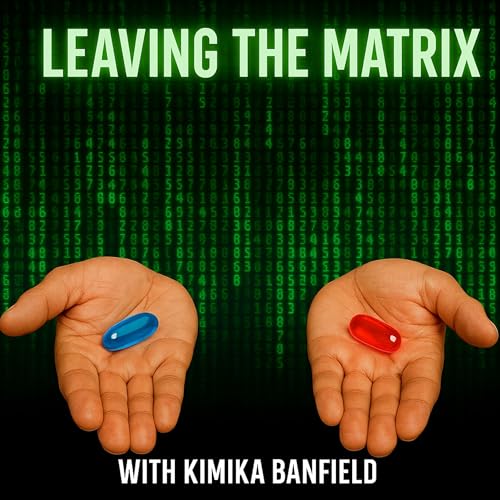Today we welcome content creator, podcaster, and fellow ADHD, anxiety, and OCD brother Kyrus Keenan A. Westcott (aka Ky). You may know him from The Vibe with Ky where he’s been helping thousands of people laugh, learn, and navigate life with mental health at the forefront. Now, he’s joining us on Different Spectrums Podcast to break down one of his favorite films: Children of Men (2006).
💭 Humor as Survival
We dive into how humor can be both a shield and a weapon when dealing with grief, anxiety, and trauma. Ky opens up about how joking through pain became a defense mechanism for him, one that helps him survive but can also complicate relationships and communication.
🧠 ADHD, Mental Health, and Medication
Ky shares candidly about living with ADHD and how it affects timing, humor, and interactions. He also discusses the role of therapy, mindfulness, and medication in his journey, explaining how treatment helped but was not a cure-all — instead, it was one piece of a much larger puzzle.
👤 Identity, Culture, and Seeking Help
We have a raw conversation about what it means to be Black or Brown, male, and neurodivergent in America. We talk about stigma, masking, the fear of looking “weak,” and the deep courage it takes to seek help. Ky’s story highlights both the barriers and breakthroughs on this path to authenticity.
🎬 Children of Men: Loss, Grief, and Sacrifice
Through scenes in the film, we explore dissociation, unspoken grief, and the weight of sacrifice. From the silent heartbreak of losing a child to the ultimate act of giving up one’s life for others, we connect these moments to real mental health struggles many of us know too well.
🤝 Why You Should Watch
This episode isn’t just a movie breakdown. It’s about humor, healing, identity, and survival in a world that often feels hostile. Ky’s vulnerability, storytelling, and passion make this a conversation you don’t want to miss.
👉 Follow Ky everywhere at The Vibe with Ky
👉 Drop your questions in the comments and we’ll make sure Ky sees them
👉 Like, share, and subscribe to support conversations that matter
To find our new Guest: @TheVibeWithKy
Kyrus Keenan A. Westcott
https://www.instagram.com/thevibewithky/
https://thevibewithky.com/
Thanks for checking out Different Spectrums! 🎙️ We're a podcast led by licensed therapists and neurodivergent individuals who explore emotions in movies and shows. Our mission is to normalize mental health challenges and promote understanding.
Join your founders and hosts, Dr. Nazeer Zerka and Spencer Srnec, as we process some key scenes to help you better understand your emotions and maybe even find some validation in them.
Episode Breakdown:
0:00 Attention
0:59 Intro
6:05 Scenes
12:23 Discussion
We’d love to hear your ideas for future episodes and connect with you on social media. You can find all our links here: https://linktr.ee/different_spectrums
⚠️ Reminder: Our podcast isn’t a substitute for therapy. If you need help, please seek professional assistance or call 988 for the National Suicide and Crisis Lifeline or 911 in case of an emergency.
Don’t forget to use our links for discounts with our partner companies:
Let our sponsor, BetterHelp, connect you to a therapist who can support you - all from the comfort of your home. Visit https://betterhelp.com/dsp and enjoy a special discount on your first month.
ONO Roller
https://onoroller.com?sca_ref=5082016.VIt4Svd8Ng
Bubs Naturals
https://www.bubsnaturals.com/?discount=DSP20
Two Nerds Candle
https://twonerdscandle.com/DSP
Cat and Raven Designs
https://catandravendesigns.com/differentspectrumspodcast
Toynk
https://toynk.com/DIFFERENTSPECTRUMSPODCAST
#podcast #therapy #psychology #mentalhealth #mentalhealthawareness #mentalillness #mentalhealthmatters #autismawareness #actuallyautistic #autism #neurodiversity #selfcare #selflove #anxietyawareness #depressionawareness
 1 時間 43 分
1 時間 43 分 1 時間 43 分
1 時間 43 分 1 時間 39 分
1 時間 39 分 1 時間 32 分
1 時間 32 分 1 時間 42 分
1 時間 42 分![Inside the Mind of Vans Pro Skater Beatrice Domond: Morals, Grief, and Healing [Ft. Beatrice Domond]](https://m.media-amazon.com/images/I/41F3gRf9SaL._SL500_.jpg)
![Why Humor is Survival | The Vibe with Ky Joins Us for Children of Men [ @TheVibeWithKy ]](https://m.media-amazon.com/images/I/41LG6mJGVXL._SL500_.jpg) 2025/08/281 時間 41 分
2025/08/281 時間 41 分![What Happens When Your Brain Never Stops? ADHD, Autism, and the Non-Stop Life [Dr. Portia Preston]](https://m.media-amazon.com/images/I/51ms6UB-cBL._SL500_.jpg) 2025/08/211 時間 35 分
2025/08/211 時間 35 分

